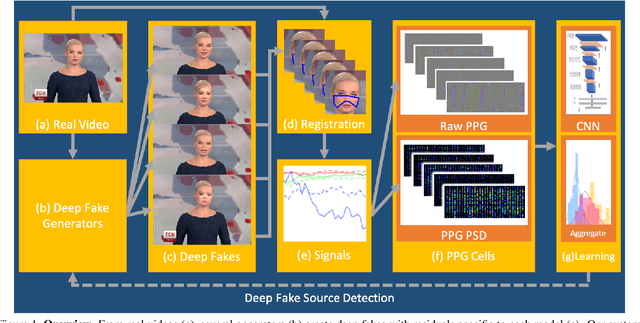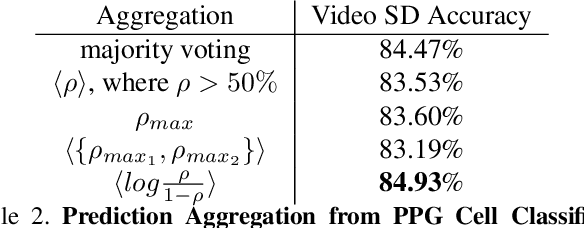How Do the Hearts of Deep Fakes Beat? Deep Fake Source Detection via Interpreting Residuals with Biological Signals
Paper and Code
Aug 26, 2020



Fake portrait video generation techniques have been posing a new threat to the society with photorealistic deep fakes for political propaganda, celebrity imitation, forged evidences, and other identity related manipulations. Following these generation techniques, some detection approaches have also been proved useful due to their high classification accuracy. Nevertheless, almost no effort was spent to track down the source of deep fakes. We propose an approach not only to separate deep fakes from real videos, but also to discover the specific generative model behind a deep fake. Some pure deep learning based approaches try to classify deep fakes using CNNs where they actually learn the residuals of the generator. We believe that these residuals contain more information and we can reveal these manipulation artifacts by disentangling them with biological signals. Our key observation yields that the spatiotemporal patterns in biological signals can be conceived as a representative projection of residuals. To justify this observation, we extract PPG cells from real and fake videos and feed these to a state-of-the-art classification network for detecting the generative model per video. Our results indicate that our approach can detect fake videos with 97.29% accuracy, and the source model with 93.39% accuracy.
 Add to Chrome
Add to Chrome Add to Firefox
Add to Firefox Add to Edge
Add to Edge